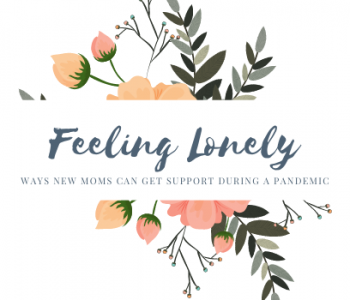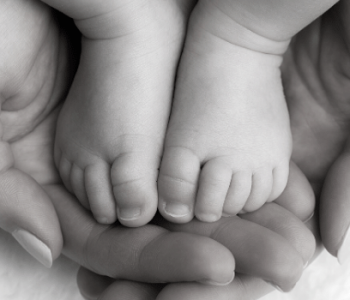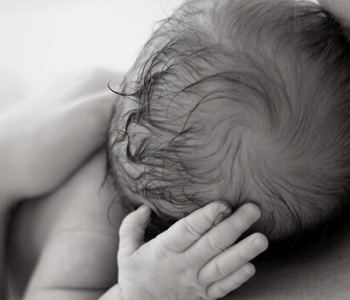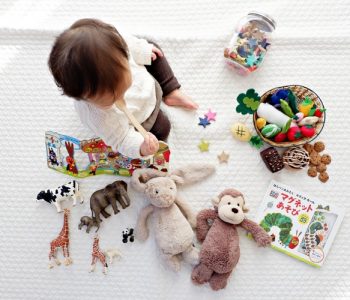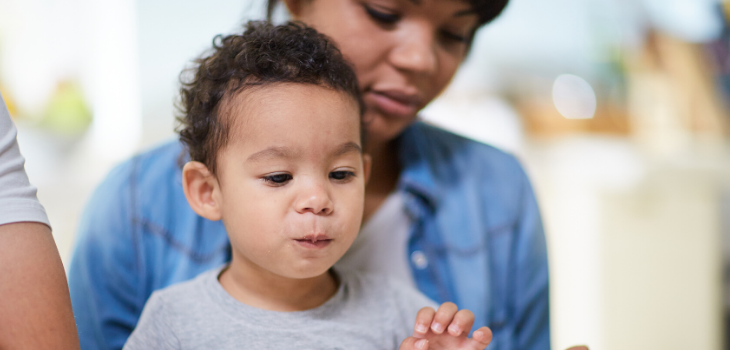 Motherhood
Motherhood
Moms of Toddlers: Encouragement on Tough Days
Uh Oh, My Child is a Toddler Now
You’ve made it through the newborn stages, you enjoyed the “firsts” stages; first solid foods, first steps, first giggles, etc., and you’ve completely bonded with your child in so many ways. And then boom! Between the ages of two and three, your child morphs into what may seem like a small demon who is only out for your sanity. Your toddler asks for a snack, so you give said child snack. It wasn’t the “right” snack.
A massive tantrum ensues and you stand there more confused than trying to read a sign in a different language. You ask yourself, “What’s actually going on right now? Who is this child and where did my sweet baby go?”. Even worse, this new behavior is a perfectly normal stage in a child’s development per other parents, health professionals and pediatric counselors and psychologists. Normal. How the heck do I deal with this new behavior while remaining calm and keeping a loving, trusting relationship with my child?
Tips and Encouragement for the Tough Days with Toddlers
There’s not a lot of time to waste once the toddler years arrive. It’s best to get a plan in place so that moms and dads can help themselves and their child navigate this new path that is “toddler-hood” and not getting stuck in any bad habits in the meantime. The first step, and one of the most crucial points, is to remind yourself that you and your child have the ability to make it through this stage while still maintaining love, affection and trust. As you already know from the previous stages, this too shall end and you can both move on to more peaceful days. Don’t forget to breathe, you can do this!
Once you’ve taken a deep breath, connect with those around. Seek support from counselors, friends, fellow mamas, exercise groups, grandparents, etc. You’re not the first or the last that will experience toddler life, open up and share what’s going on so that you can learn tips and tricks from people who have been here before. An important note about this tip, it will always be beneficial to have a professional counselor or therapist to help you through life’s major transitions. They can talk to you about parental burnout, parental depression that can be similar to postpartum depression and any anxiety you’re feeling around the situation. You’re not alone and don’t ever have to be. (I am here to help, for one!)
Some other helpful tips are:
- Show your child love and emotional support throughout each stage
- Be consistent with rules and consequences
- Stick to the routine
- Pick your battles
- Look at your child’s life as a whole – what other changes are they dealing with that could be contributing to their behavior?
- Set a good example for toddlers – avoid physical discipline at all costs and contact a professional if you are getting to a point of wanting to hit your child
- Remember that your child is perfectly unique, don’t get wrapped up in the comparison game
- Take time for YOU – go on a walk by yourself, get regular exercise, reconnect with your partner, don’t ever forget to take a deep breath and let it all go
- At the end of the day, you can only control your attitude and your reactions – make them positive ones!
You’re Doing a Great Job, Mama!
So you’ve got some tips to get your gameplan going, you’ve got your support groups in line. Next up, hug that child of yours and don’t forget, typically all they want to do is please you. They love you unconditionally and they deserve the same. They are still innocent, they are just testing the boundaries, which is what a typical child should be doing. This can be very hard on toddlers, just as it is on parents. They need to know you’ll never leave them and that you’re proud of them for becoming so independent and helpful within the family.
You’re doing an amazing job and you’ve got resources at your fingertips in case you need more knowledge or a boost of confidence. Go mama, go!
Romper https://www.romper.com/p/how-parental-burnout-affects-moms-of-toddlers-according-to-experts-19800305



